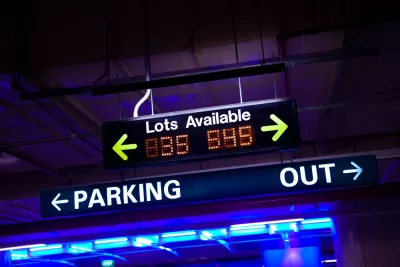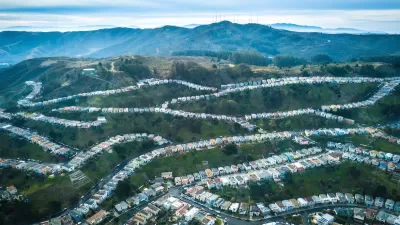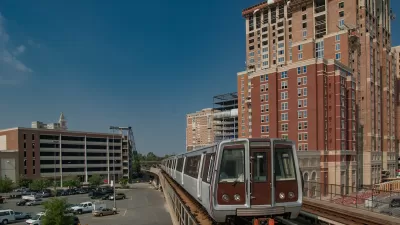The city of Portland is considering an expansion of parking requirements in Northwest Portland, much to the chagrin of advocates who predict the new requirements will make housing more expensive.

Michael Andersen reports on cause and effect in Portland, in a discussion about the effect of parking requirements implemented in 2013. Andersen cites the work of Portland affordability advocate Brian Cefola, who has collected data showing that housing prices fell between 2011 and 2013, while the city was allowing the construction of apartments without parking garages on-site. In fact, "during the 2011-2013 no-parking boom, the average new Portland apartment cost 17 percent less to build than would have been 'expected.' Then it returned to normal," according to Andersen, when the city implemented new parking requirements in 2013.
The problem, Andersen also checked with experts like Joe Cortright of City Observatory and found that the data provides only circumstantial evidence. Cefola doesn't disagree with that assessment, according to the article, but he does insist that circumstantial evidence is "enough reason for professionals at the city to dig deeper."
These questions are especially relevant in light of ongoing consideration of legislation that would expand parking requirements in Northwest Portland. Rachel Monahan provides coverage of that issue for the Willamette Week.
FULL STORY: Average apartment building costs fell sharply during no-parking apartment boom

Depopulation Patterns Get Weird
A recent ranking of “declining” cities heavily features some of the most expensive cities in the country — including New York City and a half-dozen in the San Francisco Bay Area.

California Exodus: Population Drops Below 39 Million
Never mind the 40 million that demographers predicted the Golden State would reach by 2018. The state's population dipped below 39 million to 38.965 million last July, according to Census data released in March, the lowest since 2015.

Chicago to Turn High-Rise Offices into Housing
Four commercial buildings in the Chicago Loop have been approved for redevelopment into housing in a bid to revitalize the city’s downtown post-pandemic.

Google Maps Introduces New Transit, EV Features
It will now be easier to find electric car charging stations and transit options.

Ohio Lawmakers Propose Incentivizing Housing Production
A proposed bill would take a carrot approach to stimulating housing production through a grant program that would reward cities that implement pro-housing policies.

Chicago Awarded $2M Reconnecting Communities Grant
Community advocates say the city’s plan may not do enough to reverse the negative impacts of a major expressway.
City of Costa Mesa
Licking County
Barrett Planning Group LLC
HUD's Office of Policy Development and Research
Mpact Transit + Community
HUD's Office of Policy Development and Research
City of Universal City TX
ULI Northwest Arkansas
Town of Zionsville
Urban Design for Planners 1: Software Tools
This six-course series explores essential urban design concepts using open source software and equips planners with the tools they need to participate fully in the urban design process.
Planning for Universal Design
Learn the tools for implementing Universal Design in planning regulations.


























